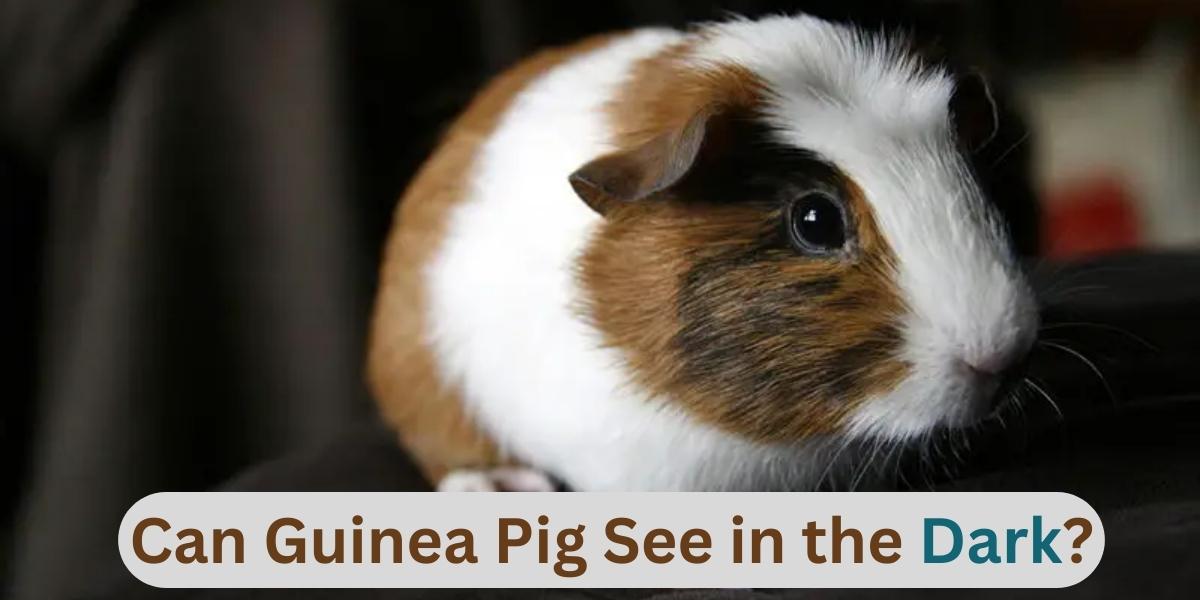Are you curious to know if your furry little friend, the guinea pig, possesses the ability to see in the dark? Look no further, as we delve into the intriguing world of guinea pig vision and nighttime behaviors in this comprehensive guide. In this article, we will explore the unique anatomy of guinea pig eyes, compare their vision capabilities to other animals, and discover how they navigate and interact with their environment in low-light conditions. By understanding these fascinating creatures and their nocturnal nature, you can ensure their safety, happiness, and well-being in your home. So, join us in unraveling the mystery of whether guinea pigs can truly see in the dark.
Understanding Guinea Pig Vision
Guinea pigs rely on their vision to navigate their environment and communicate with other animals.
Rods and Cones: The Building Blocks of Vision
Rods, responsible for low-light vision, and cones, detecting colors, work together to give guinea pigs a unique visual experience.
Guinea Pig Eye Anatomy and Adaptations
With large eyes located on the sides of their heads, guinea pigs possess a wide field of view, crucial for detecting threats and finding food.
Guinea Pig Nocturnal Activity
Nocturnal activities are vital for guinea pigs, as they instinctively explore and forage during nighttime hours.
Sleep Patterns and Activity Cycles
Guinea pigs exhibit a crepuscular sleep pattern, with heightened activity during dawn and dusk, interspersed with short napping periods.
Nighttime Behaviors and Exploration
During the night, guinea pigs engage in essential activities such as grooming, socializing, and investigating their environment for food and enrichment.
Comparing Guinea Pig Vision to Other Animals
Guinea pig vision is distinct, offering insights into how they perceive their surroundings compared to other species.
Guinea Pigs vs. Rodents: A Vision Showdown
While guinea pigs have fewer rods than nocturnal rodents, their vision is well-suited for low-light environments like dusk and dawn.
Predators and Prey: Vision Adaptations for Survival
Guinea pigs’ wide field of view and heightened sensitivity to movement enable them to detect predators and navigate safely in their habitats.
How Guinea Pigs Navigate in Low Light
Guinea pigs employ multiple senses to compensate for limited vision in low-light conditions.
Whiskers: A Guinea Pig’s Nighttime Ally
Whiskers, or vibrissae, act as sensory tools, helping guinea pigs detect obstacles and navigate their surroundings in the dark.
Hearing and Smell: Complementary Senses in the Dark
Guinea pigs depend on their sharp sense of smell and acute hearing to find food, recognize companions, and detect potential dangers while exploring at night.
Creating a Comfortable Environment for Guinea Pigs at Night
A cozy and stimulating nighttime habitat is essential for maintaining your guinea pig’s well-being.
Enclosure Lighting and Temperature
Maintain a consistent, low-light environment and comfortable temperature in your guinea pig’s enclosure to promote relaxation and natural activity patterns.
Toys and Accessories for Nighttime Stimulation
Offer a range of safe toys and accessories to your guinea pigs, to promote play, exploration, and mental stimulation during their nighttime hours.
Common Concerns and Tips for Guinea Pig Nighttime Care
Proper nighttime care is crucial for ensuring your guinea pig’s safety and happiness.
Keeping Your Guinea Pig Safe in the Dark
Regularly inspect your guinea pig’s enclosure for potential hazards, and ensure it is secure to prevent escape or injury during nighttime activities.
Sleep Disturbances and Solutions
Address sleep disturbances by minimizing noise, providing hiding spots, and establishing a consistent routine to promote a restful environment for your guinea pig.
Conclusion: Embracing Your Guinea Pig’s Nocturnal Nature
In conclusion, understanding whether guinea pigs can see in the dark is essential for providing the best possible care for your furry companion. By exploring their unique vision, nocturnal activity patterns, and various adaptations for low-light navigation, you can create a comfortable and safe environment tailored to their needs.
Additionally, by comparing their vision to other animals and addressing common nighttime concerns, you can ensure your guinea pig’s well-being and happiness. Remember to always prioritize your guinea pig’s health and safety, and embrace their fascinating nocturnal nature.
FAQs
Can guinea pigs see in the dark?
Yes, guinea pigs have relatively good night vision and are able to see in low-light conditions, though not in complete darkness. Their large, side-positioned eyes enable guinea pigs to see a wider field of view.
How well can guinea pigs see in the dark?
Guinea pigs have better night vision than humans do, but not as good as some nocturnal animals. They are able to detect some light in low light conditions, but not in complete darkness.
Do guinea pigs need light to see?
Guinea pigs do not need bright light to see, as they are able to see in low-light conditions. Providing light in their environment is important for guinea pigs’ health and well-being as it regulates their circadian rhythm and prevents disorientation.
What kind of light is best for guinea pigs?
Natural light is always best for guinea pigs, as it provides a full spectrum of light that is important for their health. However, if natural light is not available, a full spectrum artificial light can be used instead. Avoid exposing guinea pigs to direct sunlight or bright artificial light for extended periods, as it can harm their eyes.
Can guinea pigs see in color?
Yes, guinea pigs are able to see in color. Guinea pigs see some colors, mainly blue and green, but not all that humans can. They are also able to differentiate between light and dark colors, which is important for their survival in the wild.

